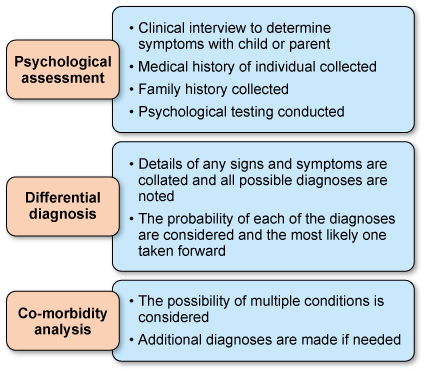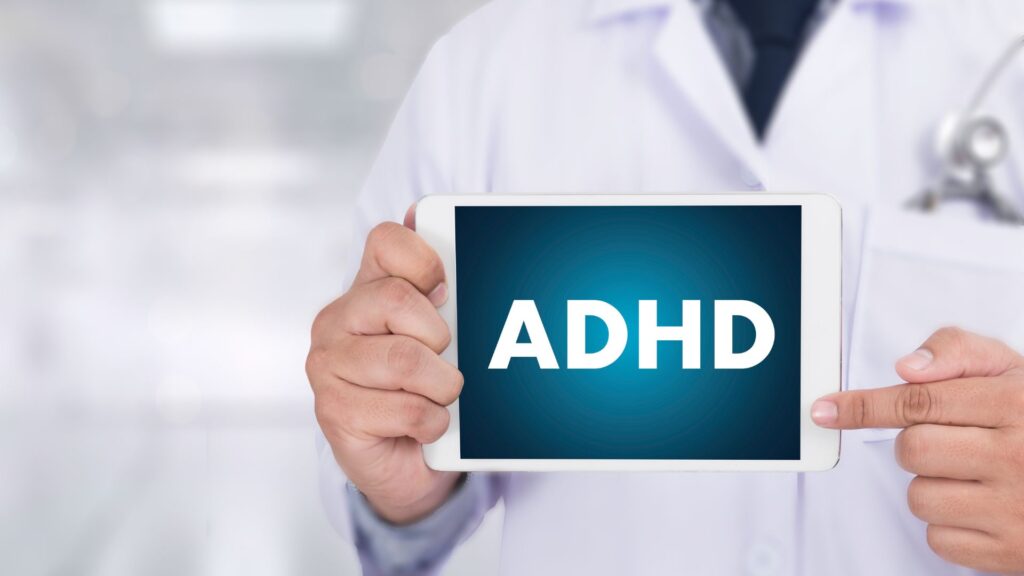ADHD (Attention-Deficit/Hyperactivity Disorder) diagnosis has always been a complex process. Clinicians need to sift through layers of symptoms, patient history, and often subjective reports to determine the right diagnosis. With the rise of digital health tools, though, this process is starting to shift.
One tool that stands out is Creyos, formerly known as Cambridge Brain Sciences. Creyos has developed an innovative approach to cognitive assessment, making it a powerful asset in diagnosing ADHD. This blog will explore how Creyos can become an indispensable tool for clinicians striving to streamline their ADHD diagnostic process.
The Challenge of ADHD Diagnosis
(Diagnostic steps for ADHD in children and adolescents)

Diagnosing ADHD is far from straightforward. It’s a condition that can present itself in various ways—some patients show hyperactivity, others struggle with attention, and many experience a combination of both. Additionally, ADHD symptoms can overlap with other disorders, such as anxiety or depression, further complicating the diagnostic process. Traditional methods, including interviews and standardized questionnaires, are helpful but can leave room for interpretation and subjective bias.
Clinicians face the challenge of differentiating ADHD from other conditions while also considering the influence of environmental factors, patient history, and individual variability. This is where a tool like Creyos can make a significant difference.
Creyos: A Game-Changer in Cognitive Assessment
Creyos brings something new to the table with its focus on objective cognitive assessment. By leveraging the power of computer-based tasks, Creyos measures various cognitive functions, including memory, attention, reasoning, and verbal abilities. For clinicians, this means accessing reliable, data-driven insights into a patient’s cognitive profile, which can be particularly useful in diagnosing ADHD.
Creyos isn’t just about delivering results; it’s about enhancing understanding. The platform offers a clear, accessible breakdown of cognitive performance, helping clinicians identify the specific areas where a patient may be struggling. This can be instrumental in differentiating ADHD from other disorders as well as in tailoring treatment plans to the individual’s needs.
How Creyos Works in Practice?
Using Creyos in a clinical setting is both straightforward and effective. After setting up an account, clinicians can invite patients to complete a series of cognitive tasks. These tasks are designed to assess various aspects of brain function in a short period, usually around 30 minutes.
The tasks themselves are engaging and easy to understand, which is particularly important for patients with ADHD who may struggle with prolonged focus. Once the tasks are completed, Creyos generates a detailed report that includes scores on different cognitive domains. Clinicians can then review these results to see where a patient may fall short compared to normative data.
For example, a patient with ADHD might show significant deficits in attention and impulse control tasks, while their memory and reasoning skills might be within normal ranges. This pattern can provide a more precise understanding of the patient’s difficulties, leading to a more accurate diagnosis.
The Benefits of Objectivity
One of the primary advantages of using Creyos is its objectivity. Cognitive tasks are less susceptible to the biases that can influence interviews and self-reported questionnaires. This objectivity is crucial in ADHD diagnosis, where patients might underreport or overreport symptoms, either unintentionally or due to the nature of the disorder itself.
By relying on performance-based assessments, clinicians can gather data that reflects the patient’s actual cognitive abilities rather than their perception of those abilities. This makes it easier to identify true cognitive deficits that align with ADHD, improving the accuracy of the diagnosis.
Supporting Treatment and Monitoring Progress
Creyos doesn’t stop at diagnosis. The platform can also be used to monitor a patient’s progress over time. As treatment for ADHD typically involves behavioral strategies, medication, or a combination of both, tracking cognitive performance can offer valuable insights into how well these interventions are working.
For instance, a patient who begins medication for ADHD might show improvement in attention tasks after a few weeks. By comparing these results with baseline data, clinicians can objectively assess the effectiveness of the treatment and make informed decisions about whether to continue, adjust, or change the treatment plan.
This ability to track progress with objective measures is especially useful in a clinical setting, where ongoing evaluation is key to long-term success in managing ADHD.
Enhancing Patient Engagement
Another significant benefit of Creyos is its potential to enhance patient engagement. ADHD patients, particularly children and adolescents, might find traditional assessment methods tedious or stressful. Creyos, on the other hand, offers a more interactive and less intimidating experience. The tasks resemble games more than tests, which can reduce anxiety and increase cooperation, leading to more accurate assessments.
Moreover, the visual and easy-to-understand nature of the results can help patients and their families better understand the diagnosis. When patients can see their own cognitive strengths and weaknesses laid out clearly, it can foster a greater sense of involvement in the treatment process. This understanding can also lead to increased adherence to treatment recommendations, as patients are more likely to follow through when they comprehend the rationale behind the interventions.
Immerse Yourself Into Battle-Tested ADHD Continuing Education
Because ADHD is a challenging mental health condition, therapists must be well-versed in up-to-date interventions to treat the illness. Luckily, Online CE Credits provides the latest programs from seasoned mental health professionals without breaking the bank. The best part? You can earn credits in your pajamas from the comfort of your home. Invest in your professional growth by choosing the certifications below:
- ADHD: Evidence-Informed Treatment Approaches for Adults and Children
- Certificate in ADHD Assessment and Treatment
- Treatment of ADHD in Children and Adolescents
- How to Clinically Assess ADHD Using Both Objective and Subjective Data
- Neural Desensitization to Accelerate Trauma Recovery: NDIT Start-to-Finish (Level 1)
Integrating Creyos into Your Practice
For clinicians considering incorporating Creyos into their diagnostic process, the good news is that it’s relatively easy to do. The platform is designed to be user-friendly, with minimal setup required. Clinicians can quickly learn how to administer the tasks and interpret the results, making it a practical addition to any practice.
Furthermore, Creyos is flexible enough to complement existing diagnostic tools. It doesn’t require clinicians to abandon their current methods, but instead offers an additional layer of data that can enhance the overall diagnostic process. Whether used as a primary tool or as a supplementary measure, Creyos can provide the kind of detailed cognitive insights that are often missing from traditional assessment methods.

Addressing Common Concerns
Some clinicians might wonder about the reliability of a digital tool like Creyos compared to more established methods. It’s important to note that Creyos has been developed based on decades of research in cognitive science. The tasks used on the platform are grounded in well-established theories and have been validated through numerous studies.
Additionally, Creyos offers the advantage of consistency. Unlike human-administered tests, which can vary depending on the examiner’s technique or interpretation, Creyos provides standardized assessments every time. This consistency helps ensure that the results are reliable and can be compared across different time points or patient groups.
The Future of ADHD Diagnosis
As healthcare continues to embrace digital tools, the role of platforms like Creyos is likely to grow. Clinicians who integrate these tools into their practice can benefit from more accurate, objective data, leading to better diagnostic outcomes for their patients. In the case of ADHD, where the diagnostic process can be particularly challenging, Creyos offers a promising solution.
Ultimately, Creyos represents a step forward in cognitive assessment, providing clinicians with a powerful tool to enhance their diagnostic accuracy and improve patient outcomes. As ADHD diagnosis continues to evolve, tools like Creyos will undoubtedly play a crucial role in shaping the future of mental health care.
You can improve the accuracy, engagement, and personalized care of your patients by integrating Creyos into your practice. Also, ADHD continuing education can amplify your therapy techniques and enable you to fulfill your licensure requirements effortlessly. Begin your learning experience today by creating an account with Online CE Credits.